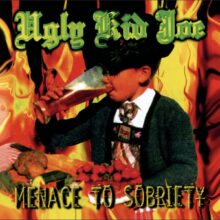Ireland born, Melbourne based singer songwriter Andy White has revealed he made an album at London’s iconic Abbey Road Studios.
Andy’s Abbey Road album is an acoustic collection based on his setlist.
Andy explains, “Last year I went to Abbey Road Studios in London and recorded there with my great friends and record producer John Leckie. We went in and I just played a live set on my own with my guitar in the famous Abbey Road Studio 2. That is going to come out as a live record next year, about next May”.
The album was Leckie’s idea. “John has been to a load of my shows and he said ‘I want to be able to buy at the end of the show your live set as you play it live, without a band or anything. I just want a solo CD of yours. All your best songs and let’s go and record it in the best studio in the world,” which was what we did”.
Watch the Noise11 Andy White interview:
John Leckie’s journey into the world of music production began at the legendary Abbey Road Studios in London. He joined the studio in 1970, starting as a tape operator and sound engineer. Abbey Road Studios, renowned for its association with The Beatles, provided a fertile ground for Leckie to hone his skills and immerse himself in the art of recording.
Working alongside some of the industry’s finest engineers and producers, Leckie quickly gained a reputation for his technical prowess and creative approach to recording. His early work included projects with notable artists such as Pink Floyd, and he contributed to the production of their seminal album “The Dark Side of the Moon.”
Leckie’s breakthrough as a producer came in the late 1970s and early 1980s when he worked with the British band XTC. He produced their albums “White Music” (1978) and “Go 2” (1978), which showcased his ability to capture the band’s unique sound and energy. His work with XTC marked the beginning of a fruitful collaboration that would continue throughout their career.
Around the same time, Leckie also worked with the post-punk band Magazine. He produced their album “Real Life” (1978), which received critical acclaim for its innovative production and artistic vision. Leckie’s ability to blend experimental sounds with a polished production style made him a sought-after producer in the emerging new wave and post-punk scenes.
One of John Leckie’s most significant contributions to music came with his work on The Stone Roses’ self-titled debut album, released in 1989. The album is often regarded as one of the greatest and most influential British albums of all time. Leckie’s production brought out the band’s jangly guitars, infectious melodies, and psychedelic influences, helping to define the sound of the Madchester movement.
The Stone Roses’ debut album achieved commercial success and critical acclaim, and it remains a cornerstone of British indie music. Leckie’s ability to capture the band’s raw energy and translate it into a cohesive and dynamic record solidified his reputation as a masterful producer.
In the 1990s, John Leckie continued to leave his mark on the music industry through his collaborations with Radiohead. He produced their album “The Bends” (1995), which marked a significant evolution in the band’s sound. The album’s rich textures, layered arrangements, and emotional depth showcased Leckie’s ability to push the boundaries of conventional rock production.
Leckie’s partnership with Radiohead continued with their critically acclaimed album “OK Computer” (1997). This album, often hailed as one of the greatest albums of all time, demonstrated Leckie’s innovative approach to production. His use of unconventional recording techniques and sonic experimentation helped create a unique and immersive listening experience.
Throughout his career, John Leckie has worked with a diverse range of artists and genres, showcasing his versatility and adaptability as a producer. He has collaborated with acts such as Simple Minds, Muse, The Verve, and The Coral, among others. His ability to understand and enhance an artist’s vision has made him a trusted and sought-after producer in the industry.
Leckie’s work with Muse on their debut album “Showbiz” (1999) helped establish the band’s grandiose sound and theatrical style. His production on The Verve’s “A Storm in Heaven” (1993) and “A Northern Soul” (1995) captured the band’s ethereal and atmospheric qualities, contributing to their distinct musical identity.
As he continues to work on new projects and inspire the next generation of producers, John Leckie’s influence on the world of music remains as strong as ever. His work serves as a testament to the power of creativity, collaboration, and the art of making music.
As we look back on John Leckie’s remarkable journey, we celebrate his contributions to the world of music and eagerly anticipate the future sounds that he will help bring to life.
Stay updated with your free Noise11.com daily music news email alert. Subscribe to Noise11 Music News here
Be the first to see NOISE11.com’s newest interviews and special features on YOUTUBE and updated regularly. See things first SUBSCRIBE here: Noise11 on YouTube SUBSCRIBE

















